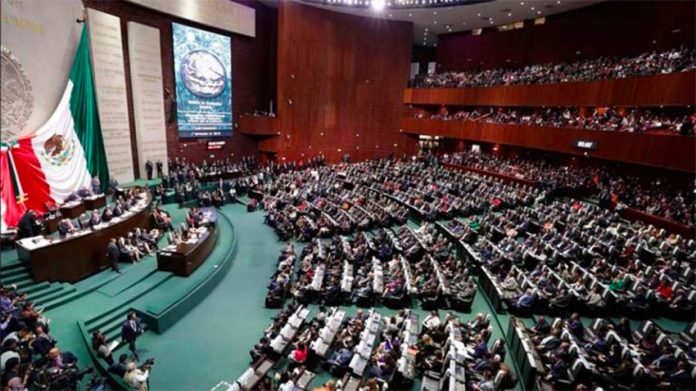The lower house of Congress has unanimously approved modifications to the General Law on the Rights of Children and Adolescents to prohibit corporal punishment and humiliation of children.
Passed by the Senate in September, the modified law was sent to the president on Thursday for promulgation.
The law now states that “it is forbidden for the mother, father or any person in the family to use corporal punishment or any type of humiliating treatment and punishment as a form of correction or discipline of children or adolescents.”
It defines corporal punishment as “any act committed against girls, boys and adolescents in which physical force is used, including blows with the hand or with any object, pushing, pinching, biting, pulling hair or ears, forcing them to maintain uncomfortable postures, burns, ingestion of boiling food or other products or any other act that has the object of causing pain or discomfort, even if it is slight.”
Humiliating punishment encompasses offensive, degrading, devaluing, stigmatizing, ridiculing and disparaging treatment.
In addition to parents and other family members, the ban on corporal punishment and humiliation applies to anyone who has custody or legal guardianship of children as well as people who spend time with minors in educational, sporting, religious, health and social settings.
Verónica Juárez, leader of the Democratic Revolution Party in the lower house, said the law prohibits a range of disciplinary practices that are deeply-rooted in the country.
“Canings, ruler beatings, smacks with flip-flops, smacks on the bottom, pinches, slaps in the face, hair pulling, pulling, chaining [children up], cigarette burns, baths with cold or [very] hot water, throwing [whiteboard] erasers [at students], withholding food, … sending children under the sun, forced labor, lashes with a belt and burns on the hands and feet among other [punishments] … will now be prohibited for people who have custody [of children], teachers and everyone who has children under their care,” she said.
Juárez said the aim of the modified law – which doesn’t stipulate any punishment for adults who inflict physical abuse on minors – is to promote timely public intervention to prevent corporal punishment and humiliation of children.
In extreme cases of violation of the law, parents and guardians could lose custody of their children, she said.
Rosalba Valencia, a Morena party deputy and president of the lower house’s children’s rights committee, said it is regrettable that corporal punishment and humiliating treatment are practices that are widespread across Mexico.
She cited a survey that found that 63% of minors aged between 1 and 14 have suffered psychological and/or physical abuse in their home.
Pilar Ortega, a National Action Party deputy and president of the justice committee, said the reform is timely and necessary. Various studies have proven that corporal punishment and humiliating treatment of minors contribute to the development of a violent society, she said.
“There is no small insult or soft blow; violence is one and the same and when it’s normalized from a young age of course it becomes acceptable conduct for people in the long term.”
Source: Reforma (sp)
